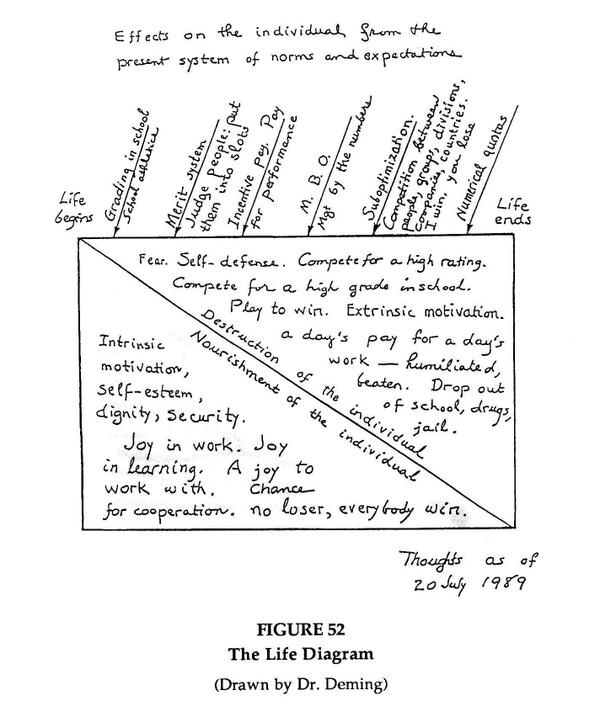I come back from vacation, and no one tells me Warren Bennis passed on?
Why wasn’t that front page news, in every city with a corporation, a government, or a school?

Warren Bennis, in a publicity photo from the University of Southern California, the last of several academic institutions where he taught, or lead the entire school.
We know why. Bennis, who some claim invented the study of leadership in the modern world, is too little read in corporations — and almost never read in government, and probably never read in education leadership.
Try this experiment, you teachers: As you go back to school this month for the “in service” sessions that challenge your ability to stay awake, ask your principals and administrators what their favorite Warren Bennis book, or idea, is. If you find one who knows who Warren Bennis was, will you send us that person’s name for a Wall of Honor here?
Bennis wrote too abstractly for many. He was not one who would have ever thought about writing The One Minute Manager, not because there aren’t some good ideas in that book, but because he wrote to the higher levels of organizational thinking. (Our good friend Perry W. Buffington used to point out in his lectures that you’d run from the waiting room if you heard your neurosurgeon was reading the One Minute Brain Surgeon. Bennis would have put it more gracefully, and taken three pages to do it — but a serious reader would understand.)
With all the trouble we have in organizations these days, you’d think Bennis’s work would be on everybody’s bookshelf, and assigned to all incoming interns.
Hey, you MBAs: What class did you read Bennis in? Did you read Bennis at all?
Jena McGregor, who spoke with and corresponded with Bennis several times in the last decade, wrote a remembrance in the Washington Post:
Warren Bennis, who died Thursday in Los Angeles at age 89, was once called the “dean of leadership gurus,” a description that unfortunately stuck.
I say “unfortunately” because, for Bennis, there was never any kind of shtick. There was no silver bullet or four-box matrix or slide deck offering an oversimplified how-to guide to leadership. This giant among leadership experts — I take no exception to the “dean” part — was a thinker and an adviser, but not a guru. He wrote and talked about leadership as if the answers were still being shaped, even in his experienced mind.
He was a thoughtful, genuine, and always engaged man whom I came to know in these past eight years as a reporter covering management and leadership.
“I am as leery as anyone of the idea of leaping to conclusions, or making more of evidence than is demonstrably true,” Bennis wrote in his influential 1989 classic, On Becoming a Leader. “To an extent, leadership is like beauty: It’s hard to define, but you know it when you see it.”
For Bennis, leadership was a personal journey, something individual and introspective that must be learned through life’s experiences. He was a staunch believer that leaders are made not born, formed out of “crucible” moments and struggles that prepare them to lead. As he wrote in On Becoming a Leader — essential reading for anyone — leadership is about self-discovery and self-expression. “Before people can learn to lead, they must learn something about this strange new world.”
It may take me a few days to organize thoughts: Does it matter that he’s gone, if those who most need his work would never read it anyway?
Any guy who can look at a convention of high-paid CEOs and tell them that followers make them what they are, deserves much more than just a second thought.
What do others say?
http://twitter.com/RandyEdsall/status/489023102370586625
(Note that the comments above came before news of Dr. Bennis’s death.)
We would expect David Gergen to know Bennis, and his work.
http://twitter.com/martykaplan/status/495582539625398272
Larry Ferlazzo knows Bennis’s work? But do Ferlazzo’s bosses know it? There’s the question.
I once took a survey among teachers, and not one said they thought their principal would fight to defend them; it was a small survey, but it discouraged me from pursuing the question more.
http://twitter.com/EconEconomics/status/497472983402037248
http://twitter.com/EconBizFin/status/498567221535584257
http://twitter.com/EconBizFin/status/498651331583037441
http://twitter.com/EconBizFin/status/498671813250269185
http://twitter.com/EdDarrell/status/498686612666982400
Spread the word; friends don't allow friends to repeat history.




 Posted by Ed Darrell
Posted by Ed Darrell 



 On Compromise:Compromise is usually bad. It should be a last resort. If two departments or divisions have a problem they can’t solve and it comes up to you, listen to both sides and then, unlike Solomon, pick one or the other. This places solid accountability on the winner to make it work.
On Compromise:Compromise is usually bad. It should be a last resort. If two departments or divisions have a problem they can’t solve and it comes up to you, listen to both sides and then, unlike Solomon, pick one or the other. This places solid accountability on the winner to make it work.





